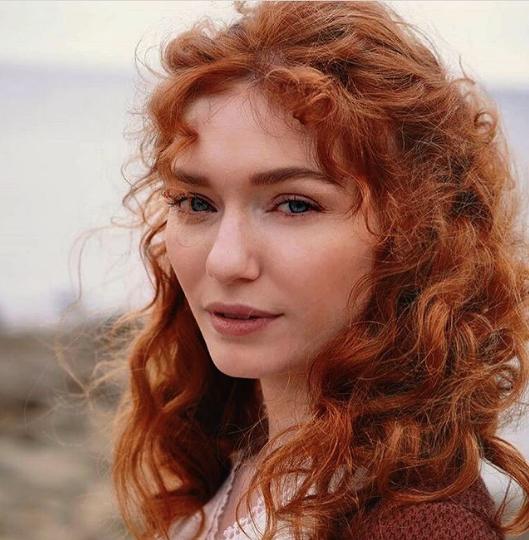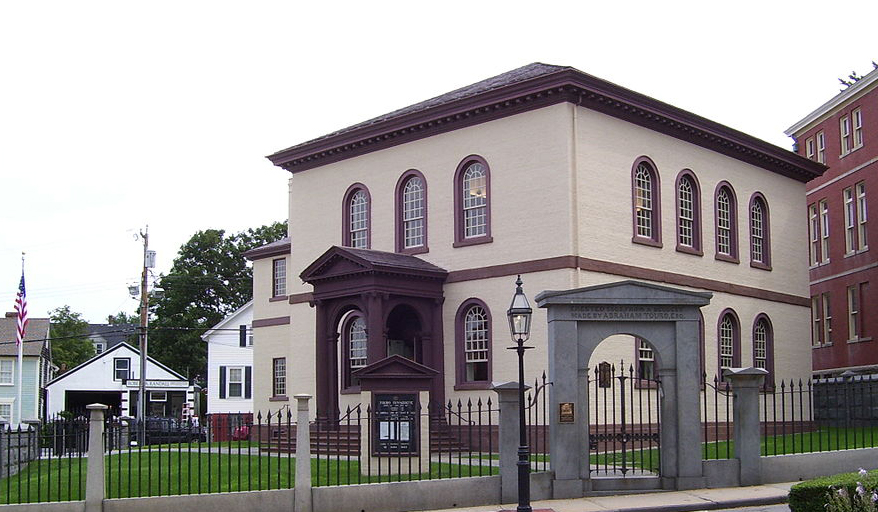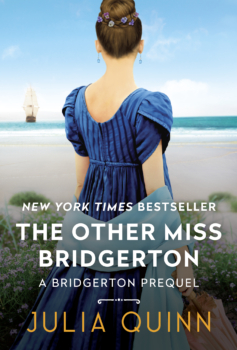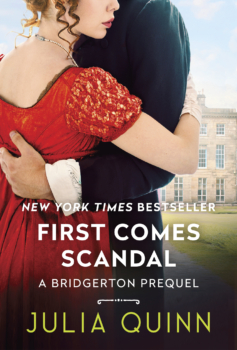The Girl with the Make-Believe Husband
Book 2 in the
Rokesby Series
While you were sleeping…
With her brother Thomas injured on the battlefront in the Colonies, orphaned Cecilia Harcourt has two unbearable choices: move in with a maiden aunt or marry a scheming cousin. Instead, she chooses option three and travels across the Atlantic, determined to nurse her brother back to health. But after a week of searching, she finds not her brother but his best friend, the handsome officer Edward Rokesby. He’s unconscious and in desperate need of her care, and Cecilia vows that she will save this soldier’s life, even if staying by his side means telling one little lie…
I told everyone I was your wife
When Edward comes to, he’s more than a little confused. The blow to his head knocked out three months of his memory, but surely he would recall getting married. He knows who Cecilia Harcourt is—even if he does not recall her face—and with everyone calling her his wife, he decides it must be true, even though he’d always assumed he’d marry his neighbor back in England.
If only it were true…
Cecilia risks her entire future by giving herself—completely—to the man she loves. But when the truth comes out, Edward may have a few surprises of his own for the new Mrs. Rokesby.
#1 New York Times bestselling author Julia Quinn presents the second novel of the delightful Bridgerton Prequel series in a stunning new package. There were Bridgertons before the eight alphabetically named siblings, and in this novel, we go back to where it all began. . .
 Start Reading Now
Start Reading Now
 Explore Inside this Story
Explore Inside this Story

Books in this series:
Find out more about the Rokesby Series →
-

Inside the Story:
JQ’s Author Notes- I rarely model my characters after real people (in looks or personality) but I happened to be watching Poldark while I was writing the early chapters of The Girl With the Make-Believe Husband, and I was so struck by Eleanor Tomlinson’s eyes, that I decided to give them to Cecilia.

Eleanor Tomlinson, in character as Demelza on BBC’s most production of Poldark. Photo from the actor’s instagram: @eleanortomlinson - Speculaas are spiced shortbread biscuits that were traditionally baked for St. Nicholas Day (December 5) in the Netherlands. They are thin, slightly brown, and crispy, and US air passengers might recognize them as the type of cookies given out on many flights under the Biscoff label. In recent years, Trader Joe’s has started using speculaas type cookies to make their now-famous Cookie Butter. TJ’s refers to the cookies as speculoos, which is the Flemish spelling of the word.

Images from Amazon for both Trader Joe’s Cookie Butter and Biscoff Cookies. - British forces occupied New York City for most of the Revolutionary War, and many prisoners of war were held on prison ships moored not far off the coast. These vessels were generally damaged or obsolete, and thus not useful in battle, and conditions on board were appalling. It is estimated that well over half the men held on these ships died during incarceration, most due to malnutrition or disease.
- One thing about Manhattan hasn’t changed over time: space is at a premium and real estate isn’t cheap. The British army, desperate to find room for all of its soldiers, commandeered countless buildings, including churches like the one used as a hospital in the early chapters of The Girl With the Make-Believe Husband.
- In Edward’s letter to Cecilia from Newport, Rhode Island, he mentions that some of his men were billeted in a synagogue. Although I didn’t mention it by name, this refers to Touro Synagogue, which is the oldest surviving Jewish synagogue in North America, and indeed, the only one that dates back to the Colonial era. Manhattan’s Congregation Shearith Israel, founded in 1654, is the oldest U.S. congregation, but its early buildings are no longer in existence and the current synagogue, on W. 70th Street, dates from 1897.

The Touro Synagogue in Newport, RI Interior. Photo credit: Stephan Savoia/Associated Press. 
The Touro Synagogue in Newport, RI Exterior. Photo: Swampyank at Wikipedia. - Margaret Tryon was a real historical figure. She was born Margaret Wake, and when she married she brought with her a dowry of £30,000. Her father was the East India Company’s Governor of Bombay from 1742 to 1750, and her mother hailed from an old and influential Norfolk family. Indeed, it was through these connections that Margaret’s husband William Tryon secured his first major position in the New World, that of Lieutenant Governor of North Carolina in 1764. Margaret was thought to be an eccentric, and indeed a little “mannish,” due to her interest in military matters over more traditionally feminine pursuits.
- In 1773, the New York Governor’s Mansion burned to the ground, and the Tryons’ daughter (also named Margaret) was saved when her governess threw her out a second-story window into a snowbank. Ironically, Margaret Tryon (the younger) later died during a botched elopement in England when she fell from a ladder and impaled herself on a fence.

Bonus Features
Enjoy an Excerpt
from
The Girl with the Make-Believe Husband
Chapter One
Manhattan Island
June 1779
His head hurt.
Correction, his head really hurt.
It was hard to tell, though, just what sort of pain it was. He might have been shot through the head with a musket ball. That seemed plausible, given his current location in New York (or was it Connecticut?) and his current occupation as a captain in His Majesty’s army.
There was a war going on, in case one hadn’t noticed.
But this particular pounding—the one that felt more like someone was bashing his skull with a cannon (not a cannonball, mind you, but an actual cannon) seemed to indicate that he had been attacked with a blunter instrument than a bullet.
An anvil, perhaps. Dropped from a second-story window.
But if one cared to look on the bright side, a pain such as this did seem to indicate that he wasn’t dead, which was also a plausible fate, given all the same facts that had led him to believe he might have been shot.
That war he’d mentioned… people did die.
With alarming regularity.
So he wasn’t dead. That was good. But he also wasn’t sure where he was, precisely. The obvious next step would be to open his eyes, but his eyelids were translucent enough for him to realize that it was the middle of the day, and while he did like to look on the metaphorical bright side, he was fairly certain that the literal one would prove blinding.
So he kept his eyes closed.
But he listened.
He wasn’t alone. He couldn’t make out any actual conversation, but a low buzz of words and activity filtered through the air. People were moving about, setting objects on tables, maybe pulling a chair across the floor.
Someone was moaning in pain.
Most of the voices were male, but there was at least one lady nearby. She was close enough that he could hear her breathing. She made little noises as she went about her business, which he soon realized included tucking blankets around him and touching his forehead with the back of her hand.
He liked these little noises, the tiny little mmms and sighs she probably had no idea she was making. And she smelled nice, a bit like lemons, a bit like soap.
And a bit like hard work.
He knew that smell. He’d worn it himself, albeit usually only briefly until it turned into a full-fledged stink.
On her, though, it was more than pleasant. Perhaps a little earthy. And he wondered who she was, to be tending to him so diligently.
“How is he today?”
Edward held himself still. This male voice was new, and he wasn’t sure he wanted anyone to know he was awake yet.
Although he wasn’t sure why he felt this hesitancy.
“The same,” came the woman’s reply.
“I am concerned. If he doesn’t wake up soon…”
“I know,” the woman said. There was a touch of irritation in her voice, which Edward found curious.
“Have you been able to get him to take broth?”
“Just a few spoonfuls. I was afraid he would choke if I attempted any more than that.”
The man made a vague noise of approval. “Remind me how long he has been like this?”
“A week, sir. Four days before I arrived, and three since.”
A week. Edward thought about this. A week meant it must be… March? April?
No, maybe it was only February. And this was probably New York, not Connecticut.
But that still didn’t explain why his head hurt so bloody much. Clearly he’d been in some sort of an accident. Or had he been attacked?
“There has been no change at all?” the man asked, even though the lady had just said as much.
But she must have had far more patience than Edward, because she replied in a quiet, clear voice, “No, sir. None.”
The man made a noise that wasn’t quite a grunt. Edward found it impossible to interpret.
“Er…” The woman cleared her throat. “Have you any news of my brother?”
Her brother? Who was her brother?
“I am afraid not, Mrs. Rokesby.”
Mrs. Rokesby?
“It has been nearly three months,” she said quietly.
Mrs. Rokesby? Edward really wanted them to get back to that point. There was only one Rokesby in North America as far as he knew, and that was he. So if she was Mrs. Rokesby…
“I think,” the male voice said, “that your energies would be better spent tending to your husband.”
Husband?
“I assure you,” she said, and there was that touch of irritation again, “that I have been caring for him most faithfully.”
Husband? They were calling him her husband? Was he married? He couldn’t be married. How could he be married and not remember it?
Who was this woman?
Edward’s heart began to pound. What the devil was happening to him?
“Did he just make a noise?” the man asked.
“I… I don’t think so.”
She moved then, quickly. Hands touched him, his cheek, then his chest, and even through her obvious concern, there was something soothing in her motions, something undeniably right.
“Edward?” she asked, taking his hand. She stroked it several times, her fingers brushing lightly over his skin. “Can you hear me?”
He ought to respond. She was worried. What kind of gentleman did not act to relieve a lady’s distress?
“I fear he may be lost to us,” the man said, with far less gentleness than Edward thought appropriate.
“He still breathes,” the woman said in a steely voice.
The man said nothing, but his expression must have been one of pity, because she said it again, more loudly this time.
“He still breathes.”
“Mrs. Rokesby…”
Edward felt her hand tighten around his. Then she placed her other on top, her fingers resting lightly on his knuckles. It was the smallest sort of embrace, but Edward felt it down to his soul.
“He still breathes, Colonel,” she said with quiet resolve. “And while he does, I will be here. I may not be able to help Thomas, but—”
Thomas. Thomas Harcourt. That was the connection. This must be his sister. Cecilia. He knew her well.
Or not. He’d never actually met the lady, but he felt like he knew her. She wrote to her brother with a diligence that was unmatched in the regiment. Thomas received twice as much mail as Edward, and Edward had four siblings to Thomas’s one.
Cecilia Harcourt. What on earth was she doing in North America? She was supposed to be in Derbyshire, in that little town Thomas had been so eager to leave. The one with the hot springs. Matlock. No, Matlock Bath.
Edward had never been, but he thought it sounded charming. Not the way Thomas described it, of course; he liked the bustle of city life and couldn’t wait to take a commission and depart his village. But Cecilia was different. In her letters, the small Derbyshire town came alive, and Edward almost felt that he would recognize her neighbors if he ever went to visit.
She was witty. Lord, she was witty. Thomas used to laugh so much at her missives that Edward finally made him read them out loud.
Then one day, when Thomas was penning his response, Edward interrupted so many times that Thomas finally shoved out his chair and held forth his quill.
“You write to her,” he’d said.
So he did.
Not on his own, of course. Edward could never have written to her directly. It would have been the worst sort of impropriety, and he would not have insulted her in such a manner. But he took to scribbling a few lines at the end of Thomas’s letters, and whenever she replied, she had a few lines for him.
Thomas carried a miniature of her, and even though he said it was several years old, Edward had found himself staring at it, studying the small portrait of the young woman, wondering if her hair really was that remarkable golden color, or if she really did smile that way, lips closed and mysterious.
Somehow he thought not. She did not strike him as a woman with secrets. Her smile would be sunny and free. Edward had even thought he’d like to meet her once this godforsaken war was over. He’d never said anything to Thomas, though.
That would have been strange.
Now Cecilia was here. In the colonies. Which made absolutely no sense, but then again, what did? Edward’s head was injured, and Thomas seemed to be missing, and…
Edward thought hard.
…and he seemed to have married Cecilia Harcourt.
He opened his eyes and tried to focus on the green-eyed woman peering down at him.
“Cecilia?”
Cecilia had had three days to imagine what Edward Rokesby might say when he finally woke up. She’d come up with several possibilities, the most likely of which was: “Who the hell are you?”
It would not have been a silly question.
Because no matter what Colonel Stubbs thought— no matter what everyone at this rather poorly outfitted military hospital thought, her name was not Cecilia Rokesby, it was Cecilia Harcourt, and she most definitely was not married to the rather handsome dark-haired man lying in the bed at her side.
As for how the misunderstanding had come about…
It might have been something to do with her declaring that she was his wife in front of his commanding officer, two soldiers, and a clerk.
It had seemed a good idea at the time.
She’d not come to New York lightly. She was well aware of the dangers of traveling to the war-torn colonies, to say nothing of the voyage across the temperamental North Atlantic. But her father had died, and then she’d received word that Thomas was injured, and then her wretched cousin had come sniffing around Marswell…
She couldn’t remain in Derbyshire.
And yet she’d had nowhere to go.
So in what was probably the only rash decision of her life, she’d packed up her house, buried the silver in the back garden, and booked passage from Liverpool to New York. When she arrived, however, Thomas was nowhere to be found.
She’d located his regiment, but no one had answers for her, and when she persisted with her questions, she was dismissed by the military brass like a pesky little fly. She’d been ignored, patronized, and probably lied to. She’d used up nearly all her funds, was getting by on one meal a day, and was living in a boarding house room directly next to a woman who might or might not have been a prostitute.
(That she was having relations was a certainty; the only question was whether she was being paid for them. And Cecilia had to say, she rather hoped she was, because whatever that woman was doing, it sounded like an awful lot of work.)
But then, after nearly a week of getting nowhere, Cecilia overheard one soldier telling another that a man had been brought to hospital a few days earlier. He’d had a blow to the head and was unconscious. His name was Rokesby.
Edward Rokesby. It had to be.
Cecilia had never actually laid eyes on the man, but he was her brother’s closest friend, and she felt like she knew him. She knew, for example, that he was from Kent, that he was the second son of the Earl of Manston, and that he had a younger brother in the navy and another at Eton. His sister was married, but she had no children, and the thing he missed most of all from home was his cook’s gooseberry fool.
His older brother was called George, and she had been surprised when Edward had admitted that he did not envy him his position as heir. With an earldom came an appalling lack of freedom, he’d once written, and he knew that his place was in the army, fighting for King and Country.
Cecilia supposed that an outsider might have been shocked at the level of intimacy in their correspondence, but she’d learned that war made philosophers of men. And maybe it was for that reason that Edward Rokesby had begun adding little notes of his own at the end of Thomas’s letters to her. There was something comforting about sharing one’s thoughts with a stranger. It was easy to be brave with someone one would never face across a dining table or in a drawing room.
Or at least this was Cecilia’s hypothesis. Maybe he was writing all the same things to his family and friends back in Kent. She’d heard from her brother that he was “practically engaged” to his neighbor. Surely Edward was penning letters to her too.
And it wasn’t as if Edward was actually writing to Cecilia. It had started with little snippets from Thomas: Edward says such-and-such or I am compelled by Captain Rokesby to point out…
The first few had been terribly amusing, and Cecilia, stuck at Marswell with mounting bills and a disinterested father, had welcomed the unexpected smile his words brought to her face. So she replied in kind, adding little bits and pieces to her own missives: Please tell Captain Rokesby… and later: I cannot help but think that Captain Rokesby would enjoy…
Then one day she saw that her brother’s latest missive included a paragraph written by another hand. It was a short greeting, containing little more than a description of wildflowers, but it was from Edward. He’d signed it
Devotedly,
Capt Edward Rokesby
Devotedly.
Devotedly.
A silly smile had erupted across her face, and then she’d felt the veriest fool. She was mooning over a man she’d never even met.
A man she probably never would meet.
But she couldn’t help it. It didn’t matter if the summer sun was shining brightly across the lakes—with her brother gone, life in Derbyshire always seemed so gray. Her days rolled from one to the next, with almost no variation. She took care of the house, checked the budget, and tended to her father, not that he ever noticed. There was the occasional local assembly, but over half the men her age had bought commissions or enlisted, and the dance floor always contained twice the number of ladies as gentlemen.
So when the son of an earl wrote to her of wildflowers…
Her heart did a little flip.
Honestly, it was the closest she’d got to a flirtation in years.
But when she had made the decision to travel to New York, it had been her brother, and not Edward Rokesby, that she had been thinking about. When that messenger had arrived with news from Thomas’s commanding officer…
It had been the worst day of her life.
The letter had been addressed to her father, of course. Cecilia had thanked the messenger and made sure he was given something to eat, never once mentioning that Walter Harcourt had died unexpectedly three days earlier. She’d taken the folded envelope to her room, closed and locked the door, and then stared at it for a long, shaky minute before summoning the courage to slide her finger under the wax seal.
Her first emotion had been one of relief. She’d been so sure it was going to tell her that Thomas was dead, that there was no one left in the world she truly loved. An injury seemed almost a blessing at that point.
But then Cousin Horace had arrived.
Cecilia hadn’t been surprised that he had shown up for her father’s funeral. It was what one did, after all, even if one didn’t enjoy particularly close friendships with one’s relations. But then Horace had stayed. And by God, he was annoying. He did not speak so much as pontificate, and Cecilia couldn’t take two steps without him sidling up behind her, expressing his deep worry for her well-being.
Worse, he kept making comments about Thomas, and how dangerous it was for a soldier in the colonies. Wouldn’t they all be so relieved when he returned to his rightful place as owner of Marswell.
The unspoken message being, of course, that if he didn’t return, Horace would inherit it all.
Bloody, stupid entail. Cecilia knew she was supposed to honor her forebearers, but by God if she could go back in time and find her great-great-grandfather, she would wring his neck. He’d bought the land and built the house, and in his delusions of dynastic grandeur he’d imposed a strict entail. Marswell went from father to son, and if not that, any male cousin would do. Never mind that Cecilia had lived there her entire life, that she knew every nook and cranny, that the servants trusted and respected her. If Thomas died, Cousin Horace would swoop in from Lancashire and take it all away.
Cecilia had tried to keep him in the dark about Thomas’s injury, but news like that was impossible to keep under wraps. Some well-meaning neighbor must have said something, because Horace didn’t wait even a full day after the funeral before declaring that as Cecilia’s closest male relative, he must assume responsibility for her welfare.
Clearly, he said, they must marry.
No, Cecilia had thought in shocked silence. No, they really must not.
“You must face facts,” he said, taking a step toward her. “You are alone. You cannot remain indefinitely at Marswood without a chaperone.”
“I shall go to my great aunt,” she said.
“Sophie?” he said dismissively. “She’s hardly capable.”
“My other great aunt. Dorcas.”
His eyes narrowed. “I am not familiar with an aunt Dorcas.”
“You wouldn’t be,” Cecilia said. “She’s my mother’s aunt.”
“And where does she live?”
Considering that she was wholly a figment of Cecilia’s imagination, nowhere, but her mother’s mother had been Scottish, so Cecilia said, “Edinburgh.”
“You would leave your home?”
If it meant avoiding marriage to Horace, yes.
“I will make you see reason,” Horace growled, and then before she knew what he was about, he kissed her.
Cecilia drew one breath after he released her, and then she slapped him.
Horace slapped her back, and a week later, Cecilia left for New York.
The journey had taken five weeks—more than enough time for Cecilia to second- and third-guess her decision. But she truly did not know what else she could have done. She wasn’t sure why Horace was so dead-set on marrying her when he had a good chance of inheriting Marswell anyway. She could only speculate that he was having financial troubles and needed someplace to live. If he married Cecilia he could move in right away and cross his fingers that Thomas would never come home.
Cecilia knew that marriage to her cousin was the sensible choice. If Thomas did die, she would be able to remain at her beloved childhood home. She could pass it along to her children.
But oh dear God those children would also be Horace’s children, and the thought of lying with that man… Nay, the thought of living with that man…
She couldn’t do it. Marswell wasn’t worth it.
Still, her situation was tenuous. Horace couldn’t actually force her to accept his suit, but he could make her life very uncomfortable, and he was right about one thing—she couldn’t remain at Marswell indefinitely without a chaperone. She was of age —barely, at twenty-two— and her friends and neighbors would give her some leeway given her circumstances, but a young woman on her own was an invitation for gossip. If Cecilia had a care for her reputation, she was going to have to leave.
The irony was enough to make her want to scream. She was preserving her good name by taking off by herself across an ocean. All she had to do was make sure no one in Derbyshire knew about it.
But Thomas was her older brother, her protector, her closest friend. For him she would make a journey that even she knew was reckless, possibly fruitless. Men died of infection far more often than they did of battlefield injury. She knew her brother might be gone by the time she reached New York.
She just hadn’t expected him to be literally gone.
It was during this maelstrom of frustration and helplessness that she heard of Edward’s injury. Driven by a burning need to help someone, she had marched herself to the hospital. If she could not tend to her brother, by God she would tend to her brother’s best friend. This voyage to the new world would not be for nothing.
The hospital turned out to be a church that had been taken over by the British army, which was strange enough, but when she asked to see Edward, she was told in no uncertain terms that she was not welcome. Captain Rokesby was an officer, a rather sharp-nosed sentry informed her. He was the son of an earl and far too important for visitors of the plebian variety.
Cecilia was still trying to figure out what the devil he meant by that when he looked down his nose and told her that the only people allowed to see Captain Rokesby would be military personnel and family.
At which point Cecilia blurted out, “I am his wife!”
And once that had come out of her mouth, there was really no backing away from it.
In retrospect, it was amazing she’d got away with it. She’d probably have been thrown out on her ear if not for the presence of Edward’s commanding officer. Colonel Stubbs was not the most affable of men, but he knew of Edward and Thomas’s friendship, and he had not been surprised to hear that Edward had married his friend’s sister.
Before Cecilia even had a chance to think, she was spinning a tale of a courtship in letters, and a proxy marriage on a ship.
Astoundingly, everyone believed her.
She could not regret her lies, however. There was no denying that Edward had improved under her care. She’d sponged his forehead when he’d grown feverish, and she’d shifted his weight as best she could to prevent bedsores. It was true that she’d seen more of his body than was appropriate for an unmarried lady, but surely the rules of society must be suspended in wartime.
And no one would know.
No one would know. This, she repeated to herself on an almost hourly basis. She was five thousand miles from Derbyshire. Everyone she knew thought she’d gone off to visit her maiden aunt. Furthermore, the Harcourts did not move in the same circles as the Rokesbys. She supposed that Edward might be considered a person of interest among society gossips, but she certainly wasn’t, and it seemed impossible that tales of the Earl of Manston’s second son might reach her tiny village of Matlock Bath.
As for what she would do when he finally woke up…
Well, in all honesty, she’d never quite figured that out. But as it happened, it didn’t matter. She’d run through a hundred different scenarios in her mind, but not one of them had involved him recognizing her.
“Cecilia?” he said. He was blinking up at her, and she was momentarily stunned, mesmerized by how blue his eyes were.
She ought to have known that.
Then she realized how ridiculous she was being. She had no reason to know the color of his eyes.
But still. Somehow…
It seemed like something she should have known.
“You’re awake,” she said dumbly. She tried to say more, but the sound twisted in her throat. She fought simply to breathe, overcome with emotion she had not even realized she felt. With a shaking hand, she leaned down and touched his forehead. Why, she did not know; he had not had a fever for nearly two days. But she was overwhelmed by a need to touch him, to feel with her hands what she saw with her eyes.
He was awake.
He was alive.
“Give him room,” Colonel Stubbs ordered. “Go fetch the doctor.”
“You fetch the doctor,” Cecilia snapped, finally regaining some of her sense. “I’m his w—”
Her voice caught. She couldn’t utter the lie. Not in front of Edward.
But Colonel Stubbs inferred what she did not actually say, and after muttering something unsavory under his breath, he stalked off in search of a doctor.
“Cecilia?” Edward said again. “What are you doing here?”
“I’ll explain everything in a moment,” she said in a rushed whisper. The colonel would be back soon, and she’d rather not make her explanations with an audience. Still, she couldn’t have him giving her away, so she added, “For now, just—”
“Where am I?” he interrupted.
She grabbed an extra blanket. He needed another pillow, but these were in short supply, so a blanket would have to do. Helping him to sit up a little straighter, she tucked it behind him as she said, “You’re in hospital.”
He looked dubiously around the room. The architecture was clearly ecclesiastical. “With a stained glass window?”
“It’s a church. Well, it was a church. It’s a hospital now.”
“But where?” he asked, a little too urgently.
Her hands stilled. Something wasn’t right. She turned her head, just enough for her eyes to meet his. “We are in New York Town.”
He frowned. “I thought I was…”
She waited, but he did not finish his thought. “You thought you were what?” she asked.
He stared vacantly for a moment, then said, “I don’t know. I was…” His words trailed off, and his face twisted. It almost looked as if it hurt him to think so hard.
“I was supposed to go to Connecticut,” he finally said.
Cecilia slowly straightened. “You did go to Connecticut.”
His lips parted. “I did?”
“Yes. You were there for over a month.”
“What?” Something flashed in his eyes. Cecilia thought it might be fear.
“Don’t you remember?” she asked.
He began to blink far more rapidly than was normal. “Over a month, you say?”
“That’s what they told me. I only just arrived.”
“Over a month,” he said again. He started shaking his head. “How could that…”
“You must not overtax yourself,” Cecilia said, reaching out to take his hand in hers again. It seemed to calm him. It certainly calmed her.
“I don’t remember… I was in Connecticut?” He looked up sharply, and his grip on her hand grew uncomfortably tight. “How did I come to be back in New York?”
She gave a helpless shrug. She didn’t have the answers he sought. “I don’t know. I was looking for Thomas, and I heard you were here. You were found near Kip’s Bay, bleeding from your head.”
“You were looking for Thomas,” he echoed, and she could practically see the wheels of his mind spinning frantically behind his eyes. “Why were you looking for Thomas?”
“I’d got word he was injured, but now he’s missing, and—”
Edward’s breathing grew labored. “When were we married?”
Cecilia’s lips parted. She tried to answer, she really did, but she could only manage to stammer a few useless pronouns. Did he actually think they were married? He’d never even seen her before this day.
“I don’t remember,” he said.
Cecilia chose her words carefully. “You don’t remember what?”
He looked up at her with haunted eyes. “I don’t know.”
Cecilia knew she should try to comfort him, but she could only stare. His eyes were hollow, and his skin, already pallid from his illness, seemed to go almost gray. He gripped the bed as if it were a lifeboat, and she had the insane urge to do the same. The room was spinning around them, shrinking into a tight little tunnel.
She could barely breathe.
And he looked like he might shatter.
She forced her eyes to meet his and she asked the only question that remained.
“Do you remember anything?”
Chapter Two
The barracks here at Hampton Court Palace are tolerable, more than tolerable, I suppose, although nothing to the comforts of home. The officers are housed two to a two-room apartment, so we have a bit of privacy. I have been assigned to live with another lieutenant, a fellow named Rokesby. He is the son of an earl, if you can believe that…
—from Thomas Harcourt to his sister Cecilia
Edward fought to breathe. His heart felt as if it were trying to claw its way out of his chest, and all he could think was that he had to get off this cot. He had to figure out what was going on. He had to—
“Stop,” Cecilia cried, throwing herself on him in an effort to keep him down. “You must calm yourself.”
“Let me up,” he argued, although some tiny rational part of his mind was trying to remind him that he didn’t know where to go.
“Please,” she begged, transferring her weight to her grip on each of his wrists. “Take a moment, catch your breath.”
He looked up at her, chest heaving. “What is happening?”
She swallowed and glanced about. “I think we should wait for the doctor.”
But he was far too agitated to listen. “What day is this?” he demanded.
She blinked, as if taken off guard. “Friday.”
“The date,” he bit off.
She didn’t answer right away. When she did, her words were slow, careful. “It is the twenty-fifth day of June.”
Edward’s heart started pounding anew. “What?”
“If you will only wait for—”
“It cannot be.” Edward shoved himself into a more upright position. “You are wrong.”
She shook her head slowly. “I’m not wrong.”
“No. No.” He looked frantically about the room. “Colonel!” he yelled. “Doctor! Anyone!”
“Edward, stop!” she cried, moving to block him when he flung his legs over the side of the bed. “Please, wait for the doctor to see you!”
“You there!” he ordered, pointing a shaky arm toward a dark-skinned man sweeping the floor. “What day is it?”
The man looked to Cecilia with wide eyes, silently asking for guidance.
“What day is it?” Edward said again. “The month. Tell me the month.”
Again, the man’s eyes flicked to Cecilia’s, but he answered, “It is June, sir. End of the month.”
“No,” Edward said, falling back to the bed. “No.”
He closed his eyes, trying to force his thoughts through the pounding in his skull. There had to be a way to fix this. If he just concentrated hard enough, focused on the last thing he could remember…
He snapped his eyes back open and looked straight at Cecilia. “I don’t remember you.”
Her throat worked, and Edward knew he should be ashamed of himself for bringing her so close to tears. She was a lady. She was his wife. But surely she would forgive him. He had to know… he had to understand what was happening.
“You said my name,” she whispered, “when you woke up.”
“I know who you are,” he said. “I just don’t know you.”
Her face trembled as she rose to her feet, and she tucked a lock of her hair behind her ear before clasping her hands together. She was nervous, that much was easy to see. And then the most disjointed thought popped into his head—she didn’t look very much like that miniature her brother carried about. Her mouth was wide and full, nothing like that sweet, mysterious half moon in her portrait. And her hair wasn’t golden, either, at least not the heavenly shade rendered by the painter. It was more of a dark blond. Rather like Thomas’s, actually, although not quite as shot through with brass.
He supposed she didn’t spend as much time in the sun.
“You are Cecilia Harcourt, aren’t you?” he asked. Because it had just occurred to him—she had never actually confirmed this fact.
She nodded. “Yes, of course.”
“And you’re here, in New York.” He stared at her, searching her face. “Why?”
He saw her eyes flick toward the other side of the room, even as she gave her head a little shake. “It’s complicated.”
“But we’re married.” He wasn’t sure whether he’d said it as a statement or a question.
He wasn’t sure if he wanted it to be a statement or a question.
She sat warily on the bed. Edward didn’t blame her for her hesitance. He’d been thrashing about like trapped animal. She must be quite strong to have been able to subdue him.
Or else he’d become quite weak.
Cecilia swallowed, looking very much as if she were steeling herself for something difficult. “I need to tell you—”
“What is going on?”
She jerked back, and they both looked over at Colonel Stubbs, who was stalking across the chapel with the doctor in tow.
“Why are the blankets on the floor?” the colonel demanded.
Cecilia rose once again to her feet, moving aside so that the doctor could take her place at Edward’s side. “He was struggling,” she said. “He’s confused.”
“I’m not confused,” Edward snapped.
The doctor looked at her. Edward wanted to grab him by the throat. Why was he looking at Cecilia? He was the patient.
“He seems to be missing…” Cecilia caught her lip between her teeth, her eyes flitting back and forth between Edward and the doctor. She didn’t know what to say. Edward couldn’t blame her.
“Mrs. Rokesby?” the doctor prodded.
There it was again. Mrs. Rokesby. He was married. How the hell was he married?
“Well,” she said helplessly, trying to find the correct words for an impossible situation. “I think he doesn’t remember, ehrm…”
“Spit it out, woman,” Colonel Stubbs barked.
Edward was half out of the bed before he realized what he was about. “Your tone, colonel,” he growled.
“No, no,” Cecilia said quickly. “It’s all right. He means no disrespect. We are all frustrated.”
Edward snorted and would have rolled his eyes except she chose that moment to lay a gentle hand on his shoulder. His shirt was thin, almost threadbare, and he could feel the soft ridges and contours of her fingers settling against him with cool, quiet strength.
It calmed him. His temper did not magically evaporate, but he was able to take a long, even breath—just enough to keep himself from going for the colonel’s throat.
“He was not sure of the date,” Cecilia said, her voice gaining in certitude. “I believe he thought it was…” She looked over at Edward.
“Not June,” he said sharply.
The doctor frowned and took Edward’s wrist, nodding as he counted his pulse. When he was through he looked first into one of Edward’s eyes and then the other.
“My eyes are fine,” Edward muttered.
“What is the last thing you remember, Captain Rokesby?” the doctor asked.
Edward opened his mouth, fully intending to answer the question, but his mind stretched before him like an endless expanse of gray misty air. He was on the ocean, the steel blue water unnaturally calm. Not a ripple, not a wave.
Not a thought or memory.
He grabbed the bedsheets in frustration. How the hell was he supposed to recover his memory if he wasn’t even sure what he did remember?
“Try, Rokesby,” Colonel Stubbs said gruffly.
“I am trying,” Edward snapped. Did they think he was an idiot? That he didn’t care? They had no idea what was going on in his head, what it felt like to have a huge blank space where memories ought to be.
“I don’t know,” he finally said. He needed to get a hold of himself. He was a soldier; he had been trained to be calm in the face of danger. “I think… maybe… I was supposed to go to Connecticut Colony.”
“You did go to Connecticut Colony,” Colonel Stubbs said. “Do you remember?”
Edward shook his head. He tried… he wanted to… but there was nothing. Just the vague idea that someone had asked him to go.
“It was an important journey,” the colonel pressed. “There is much we need you to tell us.”
“Well, that’s not likely now, is it?” Edward said bitterly.
“Please, you must not put such pressure on him,” Cecilia intervened. “He’s only just woken up.”
“Your concern does you credit,” Colonel Stubbs said, “but these are matters of vital military importance, and they cannot be put aside for an aching head.” He glanced over at a nearby soldier and jerked his head toward the door. “Escort Mrs. Rokesby outside. She may return once we finish questioning the captain.”
Oh no. That was not happening. “My wife will remain by my side,” Edward bit off.
“She cannot be party to such sensitive information.”
“That’s hardly an issue, since I have nothing to tell you.”
Cecilia stepped between the colonel and the bed. “You must give him time to regain his memory.”
“Mrs. Rokesby is correct,” the doctor said. “Cases such as this are rare, but it is very likely he will regain most, if not all, of his memories.”
“When?” Colonel Stubbs demanded.
“I cannot say. In the meantime, we must afford him all the peace and quiet that is possible under such difficult circumstances.”
“No,” Edward said, because peace and quiet was the last thing he needed. This had to be like everything else in his life. If you wanted to excel, you worked hard, you trained, you practiced.
You didn’t lie in bed, hoping for a bit of peace and quiet.
He looked over at Cecilia. She knew him. He might not remember her face, but they had exchanged letters for over a year. She knew him. She knew that he could not lie about and do nothing.
“Cecilia,” he said, “surely you must understand.”
“I think the doctor must be correct,” she said quietly. “If you would only rest…”
But Edward was already shaking his head. They were wrong, all of them. They didn’t—
God damn it.
A searing pain shot through his skull.
“What is wrong?” Cecilia cried. Edward’s last sight before squeezing his eyes shut was her looking frantically toward the doctor. “What is happening to him?”
“My head,” Edward gasped. He must have shaken it too quickly. It felt as if his brain were slamming into his skull.
“Are you remembering something?” Colonel Stubbs asked.
“No, you bloody—” Edward cut himself off before he called him something unforgivable. “It just hurts.”
“That’s enough,” Cecilia declared. “I will not permit you to question him any further.”
“You will not permit me?” Colonel Stubbs countered. “I am his commanding officer.”
It was really a pity that Edward could not bring himself to open his eyes, because he would really have liked to have seen the colonel’s face when Cecilia said, “You are not my commanding officer.”
“If I might intervene,” the doctor said.
Edward heard someone step aside, and then he felt the mattress dip as the doctor sat beside him.
“Can you open your eyes?”
Edward shook his head, slowly this time. It felt as if the only way to fight the pain was to keep his eyes tightly closed.
“It can be like this with a head injury,” the doctor said gently. “They can take time to heal, and are often very painful in the process. I’m afraid it does no help to rush things.”
“I understand,” Edward said. He did not like it, but he understood.
“That’s more than we physicians can claim,” the doctor replied. His voice was a bit quieter, as if he’d turned to speak to someone else. “There is much we do not know about injuries to the brain. In fact, I’d wager what we don’t know far outweighs that which we do.”
Edward did not find this reassuring.
“Your wife has cared for you most diligently,” the doctor said, patting Edward’s arm. “I recommend that she continue to do so, if possible out of hospital.”
“Out of hospital?” Cecilia echoed.
Edward still hadn’t opened his eyes, but he heard a note of panic in her voice.
“He is no longer feverish,” the doctor said to her, “and the wound on his head is healing well. I see no sign of infection.”
Edward touched his head and winced.
“I wouldn’t do that,” the doctor said.
Edward finally pried his eyes open and looked down at his fingers. He’d half expected to see blood.
“I can’t remove him from hospital,” Cecilia said.
“You will be just fine,” the doctor said reassuringly. “He cannot hope for better care than from his wife.”
“No,” she said, “you don’t understand. I have no place to take him.”
“Where are you staying now?” Edward asked. He was suddenly reminded that she was his wife, and he was responsible for her well-being and safety.
“I’ve rented a room. It’s not far. But there is only the one bed.”
For the first time since he’d woken up, Edward felt the beginnings of a smile.
“The one small bed,” she clarified. “It hardly fits me. Your feet will hang over the side.” And then, when no one said anything fast enough to stave off her palpable unease, she added, “It is a boardinghouse for women. He would not be allowed.”
Edward turned to Colonel Stubbs with rising disbelief. “My wife has been staying in a boardinghouse?”
“We didn’t know she was here,” the colonel replied.
“You’ve obviously known for three days.”
“She was already situated…”
A hard, cold fury began to rise within him. Edward knew the nature of the women’s boardinghouses in New York Town. It didn’t matter if he could not recall the wedding, Cecilia was his wife.
And the army let her stay in such questionable lodgings?
Edward had been raised a gentleman —a Rokesby— and there were some insults that could not be borne. He forgot the pain in his skull, forgot even that he’d lost his bloody memory. All he knew was that his wife, the woman he was sworn to cherish and protect, had been badly neglected by the very band of brothers to whom he had devoted the last three years.
His voice was diamond hard when he said, “You will find her alternate lodgings.”
Stubbs’s brows rose. They both knew who was the colonel and who was merely the captain.
But Edward was undeterred. He had spent most of his military career playing down his noble lineage, but in this, he had no such reservations.
“This woman,” he said, “is the Honorable Mrs. Edward Rokesby.”
Colonel Stubbs opened his mouth to speak, but Edward would not allow it. “She is my wife and the daughter-in-law of the Earl of Manston,” he continued, his voice icing over with generations of aristocratic breeding. “She does not belong in a boardinghouse.”
Cecilia, obviously uncomfortable, tried to intervene. “I have been perfectly well,” she said quickly. “I assure you.”
“I am not assured,” Edward responded, never taking his eyes off Colonel Stubbs.
“We will find her more suitable lodgings,” Colonel Stubbs said grudgingly.
“Tonight,” Edward clarified.
The look on the colonel’s face said clearly that he found this to be an unreasonable request, but after a tense moment of silence he said, “We can put you in the Devil’s Head.”
Edward nodded. The Devil’s Head Inn catered primarily to British officers and was considered the finest establishment of its kind in New York Town. This wasn’t saying much, but short of installing Cecilia in a private home, Edward couldn’t think of anyplace better. New York was desperately overcrowded, and it seemed that half the army’s resources went to finding places for its men to sleep. The Devil’s Head would not have been suitable for a lady traveling alone, but as the wife of an officer, Cecilia would be safe and respected.
“Montby leaves tomorrow,” Colonel Stubbs said. “His room is big enough for you both.”
“Move him in with another officer,” Edward ordered. “She needs a room tonight.”
“Tomorrow will be fine,” Cecilia said.
Edward ignored her. “Tonight.”
Colonel Stubbs nodded. “I’ll speak to Montby.”
Edward gave another curt nod. He knew Captain Montby. He, like all the officers, would give up his room in a heartbeat if it meant the safety of a gentlewoman.
“In the meantime,” the doctor said, “he must remain calm and sedate.” He turned to Cecilia. “He must not be upset in any way.”
“It is difficult to imagine being more upset than I am right now,” Edward said.
The doctor smiled. “It is a very good sign that you retain your sense of humor.”
Edward decided not to point out that he had not been making a joke.
“We shall have you out of here by tomorrow,” Colonel Stubbs said briskly. He turned to Cecilia. “In the meantime, fill him in on all he has missed. Perhaps it will jog his memory.”
“An excellent idea,” the doctor said. “I am sure your husband will want to know how you came to be here in New York, Mrs. Rokesby.”
Cecilia tried to smile. “Of course, sir.”
“And remember, do not upset him.” The doctor tipped an indulgent glance toward Edward and added, “Further.”
Colonel Stubbs spoke briefly to Cecilia about her move to the Devil’s Head, and then the two men departed, leaving Edward once again alone with his wife. Well, alone as one could be in a church full of sick soldiers.
He looked at Cecilia, standing awkwardly near his bed.
His wife. Bloody hell.
He still didn’t understand how it had come to pass, but it must be true. Colonel Stubbs seemed to believe it, and he’d always been a by-the-book sort of man. Plus, this was Cecilia Harcourt, sister of his closest friend. If he was going to find himself married to a woman he didn’t think he’d actually met, he supposed she would be the one.
Still, it seemed like the sort of thing he’d remember.
“When were we wed?” he asked.
She was staring off toward the far end of the transept. He wasn’t sure if she was listening.
“Cecilia?”
“A few months ago,” she said, turning back around to face him. “You should sleep.”
“I’m not tired.”
“No?” She gave a wobbly smile as she settled into the chair next to his bed. “I’m exhausted.”
“I am sorry,” he said instantly. He felt like he should rise. Give her his hand.
Be a gentleman.
“I did not think,” he said.
“You have not had much opportunity to do so,” she said in a dry voice.
His lips parted with surprise, and then he thought—there was the Cecilia Harcourt he knew so well. Or thought he knew so well. Truth be told, he could not recall ever having seen her face. But she sounded just like her letters, and he had held her words close to his heart during the worst of the war.
Sometimes he wondered if it was strange that he had looked forward to her letters to Thomas more than he did the ones coming to him from his own family.
“Forgive me,” she said. “I have a most inappropriate sense of humor.”
“I like it,” he said.
She looked over at him, and he thought he saw something a little grateful in her eyes.
Such an interesting color, they were. A seafoam green so pale she would surely have been called fey in another era. Which seemed somehow wrong; she was as down-to-earth and reliable as any person he’d ever met.
Or thought he’d met.
She touched her cheek self-consciously. “Have I something on my face?”
“Just looking at you,” he said.
“There is not much to see.”
This made him smile. “I must disagree.”
She flushed, and he realized he was flirting with his wife. Strange.
And yet possibly the least strange thing of the day.
“I wish I remembered…” he began.
She looked at him.
He wished he remembered meeting her for the first time. He wished he remembered their wedding.
He wished he remembered kissing her.
“Edward?” she said softly.
“Everything,” he said, the word coming out with a little more edge than he’d intended. “I wish I remembered everything.”
“I’m sure you will.” She smiled tightly, but there was something wrong about it. It didn’t reach her eyes, and then he realized that she hadn’t met his eyes. He wondered what she wasn’t telling him. Had someone told her more about his condition than she had shared with him? He didn’t know when they could have done so; she had not left his side since he’d awakened.
“You look like Thomas,” he said abruptly.
“Do you think so?” She gave him a puzzled look. “No one else seems to. Well, except for the hair.” She touched it then, probably without even realizing she’d done so. It had been pulled back into an inexpertly pinned bun, and the bits that had fallen out hung limply against her cheek. He wondered how long it was, how it might look against her back.
“I favor our mother,” she said. “Or so I’ve been told. I never knew her. Thomas is more like our father.”
Edward shook his head. “It’s not in the features. It is your expressions.”
“I beg your pardon?”
“Yes, right there!” He grinned, feeling a bit more alive than he had just a moment earlier. “You make the same expressions. When you said, ‘I beg your pardon,’ you tilted your head exactly the same way he does.”
She quirked a smile. “Does he beg your pardon so very often?”
“Not nearly as much as he should.”
She burst out laughing at that. “Oh, thank you,” she said, wiping her eyes. “I haven’t laughed since…” She shook her head. “I can’t remember when.”
He reached out and took her hand. “You haven’t had much to laugh about,” he said quietly.
Her throat worked as she nodded, and for one awful moment Edward thought she might cry. But still, he knew he could not remain silent. “What happened to Thomas?” he asked.
She took a deep breath, then slowly exhaled. “I received word that he had been injured and was recuperating in New York Town. I was concerned— Well, you can see for yourself,” she said, waving a hand toward the rest of the room. “There are not enough people to nurse the wounded soldiers. I did not want my brother to be alone.”
Edward considered this. “I am surprised your father allowed you to make the trip.”
“My father has died.”
Bloody hell. “I am sorry,” he said. “It seems my tact has departed along with my memory.” Although in truth, he could not have known. Her dress was pink, and she showed no signs of mourning.
She caught him eyeing the dusty rose fabric of her sleeve. “I know,” she said with a sheepish pout to her lower lip. “I should be in blacks. But I only had the one dress, and it was wool bombazine. I should roast like a chicken in it if I wore it here.”
“Our uniforms are rather uncomfortable in the summer months,” Edward agreed.
“Indeed. Thomas had said as much in his letters. It was because of his descriptions of the summer temperatures that I knew not to bring it.”
“I am sure you are more fetching in pink,” Edward said.
She blinked at the compliment. He could not blame her. The sheer ordinariness of it seemed oddly out of place considering their location in a hospital.
In a church.
In the middle of a war.
Add in his lost memory and found wife and truly, he did not see how his life might get any more bizarre.
“Thank you,” Cecilia said, before clearing her throat and continuing with “But you asked about my father. You are correct. He would not have permitted me to travel to New York. He was not the most conscientious of parents, but even he would have put his foot down. Although…” She let out a little choke of uncomfortable laughter. “I’m not sure how quickly he would have noticed my absence.”
“I assure you, anyone would notice your absence.”
She gave him a sideways sort of look. “You haven’t met my father. As long as the house is —excuse me, was— running smoothly, he wouldn’t have noticed a thing.”
Edward nodded slowly. Thomas had not said a lot about Walter Harcourt, but what he had seemed to confirm Cecilia’s description. He’d complained more than once that their father was too content to let Cecilia molder away as his unpaid housekeeper. She needed to find someone to marry, Thomas had said. She needed to leave Marswell and make a life of her own.
Had Thomas been playing matchmaker? Edward hadn’t thought so at the time.
“Was it an accident?” Edward asked.
“No, but it was a surprise. He was napping in his study.” She gave a sad little shrug. “He didn’t wake up.”
“His heart?”
“The doctor said there was no way to know for certain. It doesn’t matter, though, really, does it?” She looked over at him with an achingly wise expression, and Edward could have sworn he felt it. There was something about her eyes, the color, the clarity. When they met his, he felt as if the breath was sucked from his body.
Would it always be like this?
Was this why he’d married her?
“You look tired,” she said, adding before he could interrupt, “I know you said you’re not, but you look it.”
But he didn’t want to sleep. He couldn’t bear the thought of allowing his mind to slip back into unconsciousness. He’d lost too much time already. He needed it back. Every moment. Every memory.
“You didn’t say what happened to Thomas,” he reminded her.
A wave of worry washed over her face. “I don’t know,” she said with a choke in her voice. “No one seems to know where he is.”
“How is that possible?”
She gave a helpless shrug.
“You spoke to Colonel Stubbs?”
“Of course.”
“General Garth?”
“They would not permit me to see him.”
“What?” This was not to be borne. “As my wife—”
“I did not tell them I was your wife.”
He stared at her. “Why the hell not?”
“I don’t know.” She jumped up from her seat, hugging her arms to her body. “I think I was just— Well, I was there as Thomas’s sister.”
“But surely when you gave your name.”
She caught her lower lip between her teeth before saying, “I don’t think anyone made the connection.”
“General Garth did not realize that Mrs. Edward Rokesby was my wife?”
“Well, I told you I didn’t see him.” She moved back to his side, busying herself with tucking his blankets around him. “You’re getting too upset. We can talk about this tomorrow.”
“We will talk about this tomorrow,” he growled.
“Or the next day.”
His eyes met hers.
“Depending on your health.”
“Cecilia—”
“I will brook no argument,” she cut in. “I may not be able to do anything for my brother just now, but I can help you. And if that means forcing you to hold your bloody horses…”
He stared at her, drinking her in. Her jaw was set, and she had one foot slightly forward, as if ready to charge. He could almost imagine her brandishing a sword, waving it above her head with a battle cry.
She was Joan of Arc. She was Boudicca. She was every woman who’d ever fought to protect her family.
“My fierce warrior,” he murmured.
She gave him a look.
He didn’t apologize.
“I should go,” she said abruptly. “Colonel Stubbs is sending someone to collect me this evening. I need to pack my things.”
He wasn’t sure how many things she’d managed to collect since arriving in North America, but Edward knew better than to get between a woman and her traveling trunk.
“You will be all right without me?”
He nodded.
This made her frown. “You wouldn’t tell me if you thought otherwise, would you?”
He gave her a quirk of a smile. “Of course not.”
This made her roll her eyes. “I will be back in the morning.”
“I look forward to it.”
And he did. He couldn’t remember the last time he looked forward to something more.
Of course, he couldn’t remember anything.
But still.
The Girl with the Make-Believe Husband
by Julia Quinn
is available in the following formats:

Mass Market Paperback:

Pre-ordering Now, Available June 28, 2022
The United Kingdom:


Collections:
Not ready to order yours? Check out this story's overview. Read the excerpt. Listen to a bit on audio. Find out more about the series. There’s so much to love!
Awards & Achievements
-
 On June 7th, 2017, The Girl with the Make-Believe Husband debuted at #5 on the New York Times bestseller list.
On June 7th, 2017, The Girl with the Make-Believe Husband debuted at #5 on the New York Times bestseller list. - Four weeks on the USA Today bestseller list, peaking at #8.























